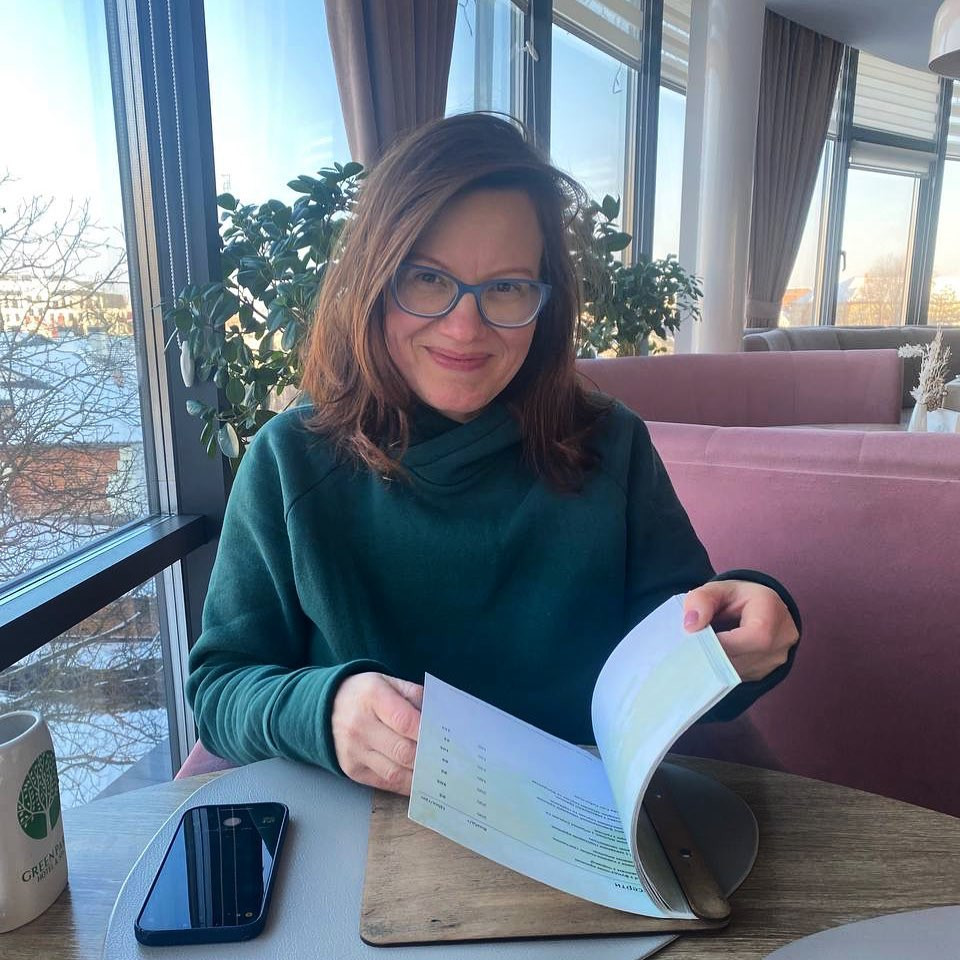
"After escaping from the shelling, people said they wanted to return home": Ukrainian psychologist talks about working with refugees in Poland.
Ukrainian writer Larisa Rudak first qualified as a philologist before specializing in child psychology. Larisa and her family have been living in Wroclaw, Poland for a long time. Now she is writing a book and also providing psychological assistance to Ukrainian refugees. She started in the early days of Russia’s full-scale invasion of Ukraine, as soon as the first war refugees began to arrive in Poland.
Since then, she has held hundreds of consultations and says that she is deeply moved by the Ukrainians’ resilience.
In the early days, people were unable to perform the simplest actions due to stress
When the full-scale war began, the first wave of refugees arrived into makeshift accommodation either in the premises of former schools or in social centers. There they were given urgent psychological support.
"Since last year, here in Poland, I started to refresh my knowledge of psychology, to run a support group for women who come to Poland. And when the war started, I realized that I had a certain grounding which means I can help with some of these psychological issues. Initially there were not so many specialists in this field, but later it turned out there were a lot of doctors among the refugees,” Larisa says.
Larisa explains that even an ordinary person, who is not a licensed psychologist, can provide psychological first aid. Because even though it is called "psychological help", it is initially about practical help.
"When the first refugees began to arrive at the station, it was as if they were frozen: they did not understand where they should go and what they should do. Then we explained a simple set of actions - where to go to eat, go to the toilet, or wash. Some simply needed to listen, to talk or to be left alone. Their condition was clear: they had endured inconveniences in making the journey under hard conditions, and this was reflected in their general state and ability to perceive information. So, they couldn’t understand simple things right away, we needed to clearly and calmly explain everything," Larisa said.
Three stages of assistance
Although, at first glance, these are rather straightforward moments in communicating with refugees, Larisa emphasizes that the work of a psychologist is very different now from what it is in peacetime. In peacetime, people mostly discuss personal and family relationships, inner experiences or age crises. Psychologists do not have much experience in discussing topics that concern people when there is a war.
To help someone deal with their emotions, even when these emotions are caused by war, there are three main steps. The first, acute, is the first psychological aid provided in the first few hours. Next is crisis counseling, which can last several meetings. And only later, when a person cannot cope, crisis stress therapy is used.
"People suffered additional stress because they had to make decisions very quickly. Most were first sent to mountain towns between Wroclaw and the Czech border. But they were even scared of where they would be settled and how they would be able to function there. We just took and showed them photos, explained it all. There was also a second stage - crisis counseling, when people could not cope with their emotions and had to pay a little more attention. And the job of such a consultant was to stabilize the emotional state - to be in contact with people, listen, to understand that you are nearby and can be relied on," says Larisa Rudak.
The psychologist recalls what impressed her the most in communicating with Ukrainian refugees while working in centers providing psychological support.
"No matter who I spoke to, and even when we met again, I was deeply struck by how much people wanted to go home. That's what I heard all the time. I expected people to be happy because they were already safe, gone from under shelling. Even if it wasn't in their city, the general situation was still difficult. And the first thing they said was that they wanted to go home."
Not everyone needs psychological help

According to Larisa Rudak, many people came quite collected and could take care of themselves.
"Honestly, I expected a worse condition. I want to note that this is also an illusion - it seems that everyone needs psychological help. We have internal resources, and we just need time to recover and adapt to stressful situations."
Despite the fact that most people were fine, some still arrived in a heightened emotional state and reacted aggressively to attempts to help. But this was also a consequence of the stress they had experienced (difficult journey, living conditions). Psychologists say that this is a normal psychological reaction. And they also add that it is most difficult for teenagers to experience the war, as additional stress is imposed on their already difficult transition period.
"According to my observations, it was easiest for mothers with small children to tolerate all this. At the beginning, there were mothers with babies a few weeks old in our center. The main thing for them was to take care of their child here and now. Older children adapted to new conditions through play, although many of them played war or drew related pictures," adds Larisa.
As she explains, it is easier for children to experience any events when at least one of their parents is with them. And she stressed that mothers and children must not be separated.
"In general, we adapt to all the nuances of the war. It's like we get used to it, no matter how scary that sounds," Larisa says. "But in order to process everything, the war must end. And from the time when the war ends, it will take at least another year and a half to recover. The longer the period of stress, the longer it takes to recover. People who survive stress better, especially wars, are those who have the support of family and friends. I will even say this: most people can cope on their own, but with the support of loved ones or at least online support groups. The only thing is that you should not expect change to be fast. This also applies to people in the military. They also have to experience everything first, integrate, and then adapt. It will actually take years."
- News













































